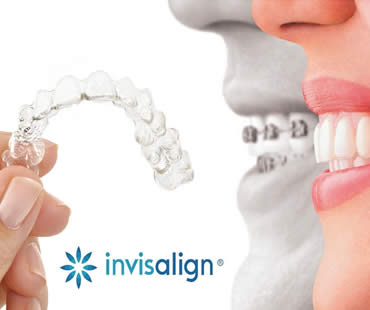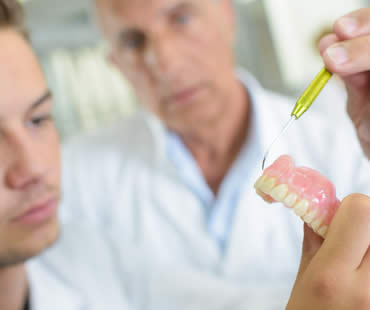
It may be obvious when you’re in a situation that requires immediate treatment by a dentist. Perhaps you’re in immense pain, or you’ve had a tooth knocked out or bleeding that won’t stop. Examples like this make it easy to decide you need help right away, but sometimes it’s not as clear. What are some other problems that may require emergency dental treatment?
Cracked teeth
A cracked or fractured tooth is serious, and often means that the tooth has been damaged both on the inside and the outside. Many times the tooth can’t be saved. If your tooth is broken, schedule an emergency appointment immediately. Remember, a cracked tooth is different than a chipped tooth, which is not as serious. You can usually wait to see your dentist at the next available opportunity for a chipped tooth.
Lost fillings
Some lost fillings require immediate care to avoid worse issues. Fillings protect your tooth’s root from exposure, so if the filling falls out your root can be uncovered and cause intense pain. There is also increased risk for damage to your tooth’s structure, so seeing your dentist as soon as possible is suggested.
Lost crown
If your crown falls out, call your dentist for an appointment as soon as possible. Until you can see the dentist, try putting the crown back in place using an over-the-counter dental adhesive. Do not use any products like Super Glue. If the crown won’t stay in place, make sure you take it to your appointment with you so that it can be re-cemented correctly.
Abscess
If you have a painful swelling on your gum that resembles a pimple, it might be a serious condition called an abscess. It can damage gum tissue and teeth, as well as spread serious infection to your body. See your dentist immediately for proper treatment.
Schedule your appointment at our Meriden dental office

One of the most important decision for the health of you and your family is a family dentist. Similar to a general dentist, family dentists offer a few significant exceptions. Both types of dentists treat oral health and manage dental hygiene, but family dentists offer care to patients of all ages. This makes family dentistry a convenient choice especially if you have family members of various ages in your home.
Traditional dental services that you’d expect from any dentist are available at a family dental office. Preventative services like professional cleanings, fluoride treatments, and thorough examinations are offered. Regular checkups allow for diagnostic tests to catch problems in their early stages, before they have a chance to advance and become very painful or complicated to repair. Procedures like dental fillings, bonding, root canal therapy, teeth whitening and more are often available through your family dentist. If specialized care is required that is not performed in the office, the dentist will provide a referral to an appropriate specialist for treatment.
Finding the right family dental practice for your whole family is vital. This will increase the comfort level of your family members and promote checkups every six months as advised by dentists. To choose your family dentist, ask friends, family, coworkers and neighbors for recommendations. Schedule a consultation to meet the dentist and staff, see the office, and make sure the practice meets your requirements. It is especially important to ensure children are comfortable with the family dentist to help avoid fears or anxiety. Also look for an office convenient to your home so that everyone will be more likely to keep their appointments.
From baby teeth in kids to permanent teeth in adults to missing teeth in seniors, family dentists are trained and equipped to handle everyone’s needs.
We look forward to seeing you in our Meriden dental office

Teaching your kids good dental habits and making sure they get dental care are some of the most important things you can do for them. Guidelines for helping your child improve their oral health depend upon their ages. Here are some oral health tips for various stages of childhood.
Infants (up to 2 years):
It’s never too early to begin oral care! Clean your baby’s gums with a damp cloth after feedings to remove bacteria. Once the first tooth erupts, use a soft toothbrush for babies to gently brush the teeth and gums. Use a pea-sized dab of toothpaste and brush at least twice a day. Around the first birthday, begin taking your child to the dentist for regular checkups.
Preschoolers (2-4 years):
This age group has the highest incidence of tooth decay, because most preschoolers love sugary foods but may not love brushing their teeth. Brush your child’s teeth yourself until they are old enough to do it well, but continue supervising the process to make sure all areas are clean. Consider flavored or character fluoride toothpastes if it encourages your child to brush. Also, limit the amount of sugary foods and drinks your child consumes.
Young elementary (5-7 years):
As more and more teeth grow in, your child needs to brush carefully with fluoride toothpaste. Make sure all areas of your child’s mouth are being reached, and help your child use dental floss to clean between teeth and gums. Continue helping your child make healthy diet choices.
Older kids (over 8 years):
Most children should be able to brush on their own by age 8, but performing spot checks is a good idea to make sure they are doing a good job. Teach your child to brush after meals, especially when eating sugary or sticky foods, and emphasize the importance of flossing every day. Continue taking your child for regular dental checkups every six months, which will help create a life-long habit of good oral care.
We treat patients from Meriden and the surrounding area

A toothache can ruin your life, at least until you have treatment that relieves the pain. Headaches, mouth pain, or inability to chew can all accompany a tooth problem. It is not unusual for tooth pain to be linked to tooth decay, and when it becomes advanced you just can’t ignore it. This is when root canal therapy is valuable.
What is the procedure?:
Root canal treatment focuses on the pulp cavity, which is the inside of the tooth. When the pulp is infected or inflamed, it needs to be completely removed from the tooth in order for it to heal. It doesn’t matter if the damage to the pulp results from severe decay, tooth fracture, faulty crown, repeated dental procedures, or trauma. Even if the damage isn’t visible or causing unbearable pain, the bottom line is that the interior of the tooth must be cleaned out, disinfected and sealed to prevent future infection. A crown is typically placed on top of the tooth to protect it and complete the procedure.
Why is it necessary?:
If left untreated, an infected pulp can lead to intense pain or spread to other parts of the body. Root canal treatment is the best way to save the tooth and restore its function. Other benefits of the procedure are maintaining the tooth’s natural look, protecting other teeth from excessive wear, restoring normal chewing ability, and allowing normal sensation and biting force.
How long does it take?:
The procedure is more routine than you might think. An experienced dental professional can complete the process is one or two appointments, depending on your specific case. Once the procedure is complete, your repaired tooth should last as long as the rest of your teeth.
Our dental office is located in Meriden

Straighter teeth are possible through traditional metal braces or Invisalign clear aligners, but how do you know which are right for you? These two types of orthodontics work differently to improve smiles. Invisalign uses invisible removable plastic aligners to gradually shift teeth, while metal braces require brackets bonded to the teeth and arch wires to apply pressure to move the teeth.
If you are deciding between these two types of treatment, ask yourself some questions to help you choose:
- How severe is your case? Moderate conditions like overcrowding, gaps, and overbite or underbite issues can be treated with either option. However, more severe cases like malocclusions, jaw problems, crossbites, or seriously crooked teeth may require metal braces for more effective results.
- Do you care if others see your braces? Metal braces are very noticeable and bulky, while Invisalign is virtually invisible in your smile. Adults and self-conscious teens may prefer the concept of hidden orthodontic treatment.
- Will you be diligent in wearing aligners? They should be worn at least 22 hours each day for best results, so neglecting to wear them consistently can negatively impact your smile or require longer treatment time.
- Are you concerned about keeping your teeth clean? Metal braces can be difficult to clean because food becomes caught in the wires and brushing may not easily reach all areas. Since Invisalign trays are removable, brushing and flossing are performed normally throughout the process.
- Are you worried about teeth stains? Since it’s easier to keep teeth clean with Invisalign, you avoid the risks of stains from food and plaque buildup around metal braces that may stain your teeth.
- How often do you want to visit the orthodontist? Metal braces require office visits at least every 4 weeks for tightenings. Invisalign trays are changed every 2 weeks, but many orthodontists provide a series of trays to take home so that an office visit isn’t required each time. It’s possible that you may not visit the orthodontist as often with Invisalign.
The ideal choice for your orthodontic treatment can be decided by consulting with your orthodontist. Find out which option will best transform your smile.
Schedule your appointment at our Meriden dental office

An implant overdenture combines the use of traditional dentures and implant technology to create a denture that fits over your remaining natural tooth roots or dental implants. These root or implant supported dentures are held in place by dental attachments which provide excellent stability and support for your dentures. Overdentures were developed to help patients missing some or all of their teeth regain a quality of life that may have been lacking since they lost their teeth.
There are several benefits to implant overdentures when compared to traditional dentures:
- Saving your natural roots or having implants placed slows bone loss by stimulating the bone in your jaw when you eat or chew.
- Because overdentures are better fitting by design, they are more stable and allow you to chew food more thoroughly. This promotes better digestion and allows you to absorb more nutrients.
- The increased stability provided by overdentures also means you are able to speak more clearly, as there is no slipping or clicking of your dentures.
- Loose dentures are not a worry with overdentures. Sticky adhesives and messy denture creams are unnecessary when you have implant overdentures.
- With overdentures, the natural shrinkage that occurs from an under-stimulated jaw does not occur. This keeps your face from looking sunken, as can often happen with traditional dentures.
To find out if you are a candidate for implant overdentures, schedule an evaluation by your dental professional. Overdentures could be the best, most natural treatment for restoring your oral health and beautiful smile.
Our dental office is located in Meriden














